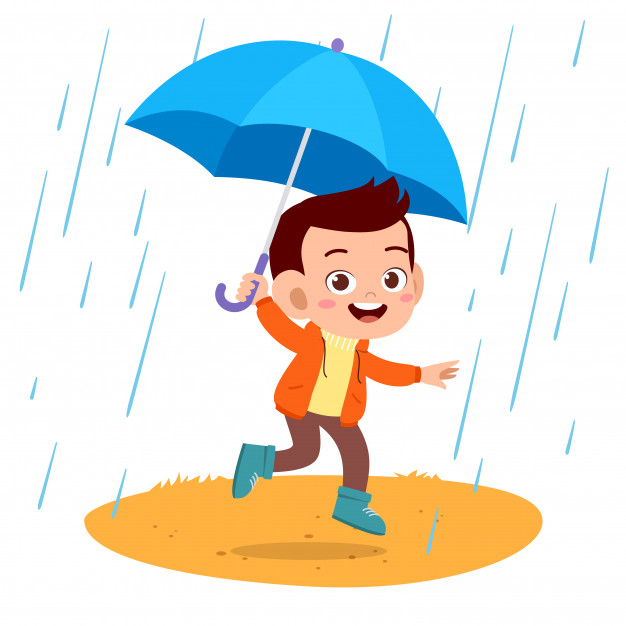Rainy Day Fun! (from our Early Childhood Program Directors)
When the weather is rainy and uncomfortable for us as adults, it doesn’t mean that our children feel that way. Rain puddles and water have an almost magnetic pull for children. They love to jump in them, roll through them on their trikes and feel the splashes on their legs, float things in them and much more.
- Puddle jumping – As long as it is warm enough, you can encourage your child to put on his raincoat and boots and run outside to jump in puddles while it is raining! What a fun way to develop the gross motor skills of jumping and stomping! Children also experience the cause and effect and properties of water through this simple activity.
- Floating and Sinking – Use a puddle or a bucket of water as a water table. Let your child explore the properties of floating and sinking by experimenting with different items found outside or inside. Does a leaf float in the puddle? What about a stick? Or a rock? You can grab items in your home to try- a metal spoon, coins, a toy car, etc.. This can lead to other experimentation and questioning. Why do ripples form when you drop a rock into a puddle? Children learn to make predictions and explore strategies for answering their questions through this type of play.
- Puddle Music – Rain has many sounds. Listening to rain on the roof and rain falling into a puddle are different experiences. A soft rain also sounds different from a hard rain. Try to replicate the sounds of rain using a pot or a woodblock, a drum or a shaker. We also love to sing while we play in puddles. Songs can also lead to imaginative role-playing in the puddles. Here are some songs we like to sing on rainy days.
- Row, Row, Row Your Boat
- It’s Raining, It’s Pouring
- There’s a Hole in the Bucket
- Singing in the Rain
- Puddle/Water Soup – Children use their environment to create play experiences with very little help from adults. We just need to give them the opportunities to explore and the freedom to live out their ideas. Provide some buckets and scoops or spoons to use in water play. Your child will stir, scoop, measure and serve his soup, they will also use rich language to describe the process. Children practice and build vocabulary and build confidence and self-regulation through imaginative play. Water soup also can incorporate measuring and fine motor development using measuring scoops and cups.
- Wash the Toys- This is one of the simplest water activities for children, but it is a big hit every time. Grab some toys, add some soap and get to washing.
Puddles and water can provide endless fun and exploration. Please reach out to us if you have any questions!



